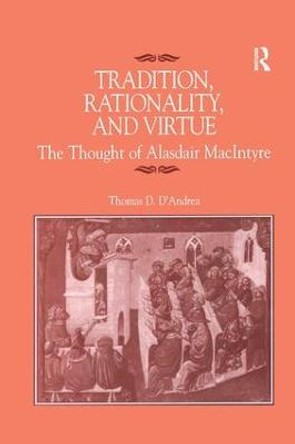Description
The essays in this collection explore the implications of Alasdair MacIntyre's critique of liberalism, capitalism, and the modern state, his early Marxism, and the complex influences of Marxist ideas on his thought. A central idea is that MacIntyre's political and social theory is a form of revolutionary-not reactionary-Aristotelianism. The contributors aim, in varying degrees, both to engage with the theoretical issues of MacIntyre's critique and to extend and deepen his insights.
The book features a new introductory essay by MacIntyre, "How Aristotelianism Can Become Revolutionary," and ends with an essay in which MacIntyre comments on the other authors' contributions. It also includes Kelvin Knight's 1996 essay, "Revolutionary Aristotelianism," which first challenged conservative appropriations of MacIntyre's critique of liberalism by reinterpreting his Aristotelianism through the lens of his earlier engagement with Marx.
Contributors: Paul Blackledge, Kelvin Knight, Alasdair MacIntyre, Tony Burns, Alex Callinicos, Sean Sayers, Niko Noponen, Emile Perreau-Saussine, Neil Davidson, Sante Maletta, Anton Leist, Peter McMylor, and Andrius Bielskis.
About the Author
Paul Blackledge is a reader in political theory at Leeds Metropolitan University. He is the author and co-editor of a number of books, including Alasdair MacIntyre's Engagement with Marxism: Essays and Articles, 1953-1974.
Reviews
"This is an excellent collection. Its particular strength is its sustained focus on Alasdair MacIntyre's political thought, in particular MacIntyre's complicated relation and indebtedness to Marxism. In their introduction, the co-editors say that the reception of MacIntyre within political philosophy has largely been reductive and one-sided, namely, that he is simply viewed as a conservative communitarian. In focusing on MacIntyre's radical heritage, this volume helps correct that simplistic misperception." -Keith Breen, Queen's University Belfast
"In this learned and elegant volume, Paul Blackledge, Kelvin Knight, and their roster of noteworthy contributors-including Alasdair MacIntyre himself-strive with considerable success to explore the core ideas of MacIntyre's ethics and politics in order to present a coherent vision of his intellectual and practical project. The reader will discover how the evolution of MacIntyre's teachings has led him to a position that the authors convincingly label 'Revolutionary Aristotelianism,' a doctrine that unites the many concerns and interests evinced by him over a half-century or more. This book is required reading for political theorists, philosophers, sociologists, and anyone else who has ever struggled to make sense of MacIntyre's large, always challenging, and sometimes provocative body of work." -Cary J. Nederman, Texas A&M University
"Alasdair MacIntyre is perhaps the greatest moral philosopher alive today. . . . Blackledge and Knight have assembled this fascinating set of papers addressing what his politics are and/or should be. . . . MacIntyre, as is clear from this volume, makes no secret of the fact both that he takes Marxism as a political programme to be unsalvageable and that he still feels entitled to call his Thomist Aristotelianism 'revolutionary.'" -Marx and Philosophy Review of Books
"Virtue and Politics offers a collection of essays that address the political trajectories of [Alasdair MacIntyre's] . . . early and more recent work. Whereas countless books and articles have been written on the significance of MacIntyre's contributions to moral philosophy, Virtue and Politics is distinctive in its decidedly political focus." -International Socialist Review
"A superb academic trajectory, an indictment of modernity and a witness to the power of Christian tradition. . . . MacIntyre's insights transcend party politics, and all readers will benefit from continuing reflections on their applicability to contemporary Western society." -The Living Church
"If there are two people fitted for the task of assembling papers to critically explore the sources, structure, implications and limitation of MacIntyre's social, political and ethical philosophy, Knight and Blackledge are them. . . . readers looking for wide-ranging, incisive, original and charitably critical evaluations of MacIntyre's work can do no better than . . . [this volume]." -Journal of Critical Realism
"This point leads to a final question: in what way (if at all) can we describe MacIntyre's political thought as revolutionary? Virtue and Politics explores all these questions from a variety of perspectives. It also contains MacIntyre's illuminating response to the volume's essays, which helps us understand his own sense of these questions. It is difficult to give an adequate sense of the richness and diversity of the essays in this volume, which wrestle with all of these questions." -The Thomist
Book Information
ISBN 9780268022259
Author Paul Blackledge
Format Paperback
Page Count 380
Imprint University of Notre Dame Press
Publisher University of Notre Dame Press
Weight(grams) 507g
Dimensions(mm) 229mm * 152mm * 20mm









